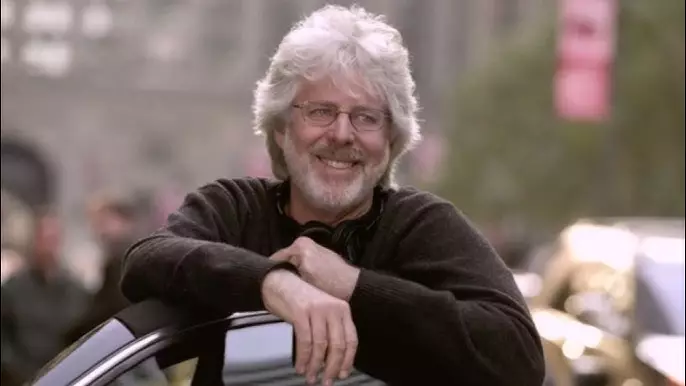The film industry has lost a significant figure with the passing of Charles Shyer, an Oscar-nominated screenwriter, director, and producer whose work resonated deeply in the realms of comedy and drama. At 83, Shyer left behind an indelible mark of creativity and laughter with films such as *Private Benjamin*, *Baby Boom*, and the beloved *Father of the Bride* series. While his death was not accompanied by an explanation, the profound sadness emanating from his family underscores the lasting impact he had during his life and career.
In a heartfelt message shared with Deadline, the Meyers-Shyer family expressed their sorrow and nostalgia: “It’s with an indescribably heavy heart that we share the news of our beloved father, Charles Shyer’s passing.” This statement reflects not just personal loss but also the legacy of art he has bequeathed to his family, including his children, who aspire to continue in the world he cherished. His work not only entertains but also intertwines emotional connections with audiences, solidifying that his essence will endure through future generations.
Trailblazing Career Highlights
One of Shyer’s notable achievements includes his Oscar nomination for the original screenplay of the 1980 comedy hit *Private Benjamin*, co-written with Nancy Meyers and Harvey Miller. This film, headlined by a delightful Goldie Hawn, became a classic and set the stage for Shyer’s prolific career in the entertainment industry. The collaboration with Meyers, both personally and professionally, would blaze a trail in Hollywood, yielding multiple hits that showcased their comedic chemistry and cinematic ingenuity.
Shyer and Meyers’ partnership gave birth to a string of successful films, including *Irreconcilable Differences*, *Baby Boom*, and the *Father of the Bride* duo. While the films often focused on humor, they tackled themes of relationships and familial bonds with a poignant touch. The productions featured prominent stars like Steve Martin and Diane Keaton, further solidifying Shyer’s reputation as a leading figure in the realm of romantic comedies.
Their professional rapport ultimately led to personal connections, culminating in their marriage in 1990. However, their union also represented the complex dynamics often faced in creative collaborations. The couple’s split in 1999 marked a turning point for Shyer, who then embarked on a solo journey in filmmaking. He continued to explore new dramatic depths with films such as *The Affair of the Necklace* and a contemporary remake of *Alfie*, demonstrating his ability to evolve as an artist while maintaining a distinct voice in the film industry.
After their divorce, the release of *The Parent Trap* in 1998 (featuring Lindsay Lohan in a dual role) marked a significant shift; it showcased Meyers at the helm of directing while Shyer took a more backseat role. This evolution illustrates how collaboration can transform into individual expression, highlighting the fluid nature of creative partnerships and the artistic explorations that can emerge even after separation.
Even in the latter stages of his career, Shyer remained active, contributing his innovative storytelling skills to projects like the recent *The Noel Diary*, showcasing that his creative juices did not wane with age. His versatility is evident through a myriad of projects, from his early days writing for the television classic *The Odd Couple* to producing heartfelt holiday films like *Best Christmas Ever*. Each of these ventures illustrates his enduring appeal as a storyteller who understood the pulse of audiences.
Charles Shyer’s passing is a significant moment of reflection for the film industry, a reminder of the joys, relationships, and complexities of life portrayed through comedic lens. His films invite viewers not only to laugh but also to contemplate deeper connections and familial ties. As his family carries his cherished legacy forward, it serves as vital testimony that art continues to thrive beyond the artist’s lifespan. The heart of Shyer’s work reverberates in the laughter and love shared in theaters, forever preserving his status as a visionary who transformed the landscape of modern comedy.


Leave a Reply